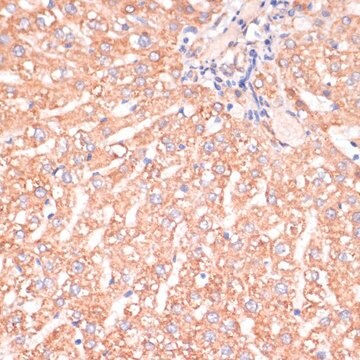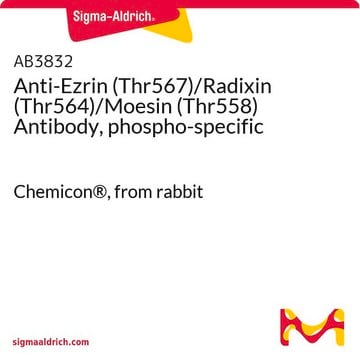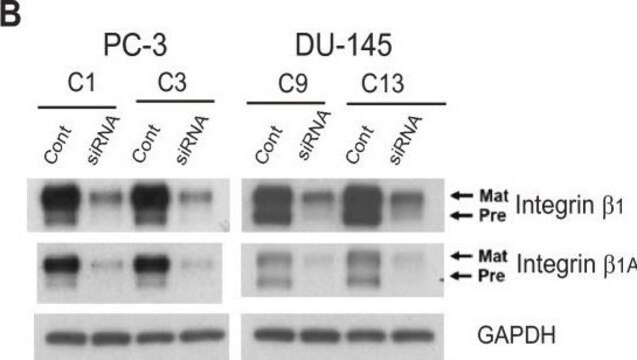MAB4334
Anti-MDR1 Antibody, conformational extracellular epitope, clone UIC2
clone UIC2, Chemicon®, from mouse
Sinónimos:
P-glycoprotein, CD243, p170, Pgp
About This Item
IF
IHC (p)
IP
immunofluorescence: suitable
immunohistochemistry (formalin-fixed, paraffin-embedded sections): suitable
immunoprecipitation (IP): suitable
Productos recomendados
biological source
mouse
Quality Level
antibody form
purified immunoglobulin
antibody product type
primary antibodies
clone
UIC2, monoclonal
species reactivity
primate, human
should not react with
rat, mouse
manufacturer/tradename
Chemicon®
technique(s)
flow cytometry: suitable
immunofluorescence: suitable
immunohistochemistry (formalin-fixed, paraffin-embedded sections): suitable
immunoprecipitation (IP): suitable
isotype
IgG2aκ
NCBI accession no.
UniProt accession no.
shipped in
wet ice
Gene Information
human ... ABCB1(5243)
General description
Specificity
Immunogen
Application
Immunoprecipitation: 5 - 10 fold molar excess of UIC2 over the expected Pgp concentration; realistically, 1 - 5 μg per 1 mL of cell lysate.
Flow Cytometry (conventional and UIC2 Shift assay): depends highly on Pgp expression by target cells; usually, 0.1 μg/mL for low Pgp expressors and 1 μg/mL for high Pgp expressors.
Immunofluorescence: depends highly on Pgp expression by target cells; usually, 0.1 ug/ml for low Pgp expressors and 1 μg/mL for high Pgp expressors.
IHC on frozen and paraffin sections: 1 - 10 μg/mL.
Optimal working dilutions must be determined by end user.
Metabolism
Toxicology & Drug Resistance
Physical form
Storage and Stability
Other Notes
Legal Information
Disclaimer
¿No encuentra el producto adecuado?
Pruebe nuestro Herramienta de selección de productos.
Optional
Storage Class
10 - Combustible liquids
wgk_germany
WGK 2
flash_point_f
Not applicable
flash_point_c
Not applicable
Certificados de análisis (COA)
Busque Certificados de análisis (COA) introduciendo el número de lote del producto. Los números de lote se encuentran en la etiqueta del producto después de las palabras «Lot» o «Batch»
¿Ya tiene este producto?
Encuentre la documentación para los productos que ha comprado recientemente en la Biblioteca de documentos.
Nuestro equipo de científicos tiene experiencia en todas las áreas de investigación: Ciencias de la vida, Ciencia de los materiales, Síntesis química, Cromatografía, Analítica y muchas otras.
Póngase en contacto con el Servicio técnico




![Poly[4,5-difluoro-2,2-bis(trifluoromethyl)-1,3-dioxole-co-tetrafluoroethylene] dioxole 87 mol %](/deepweb/assets/sigmaaldrich/product/structures/951/320/21327fcd-4960-402d-8ae1-bf2e379cb2e2/640/21327fcd-4960-402d-8ae1-bf2e379cb2e2.png)



